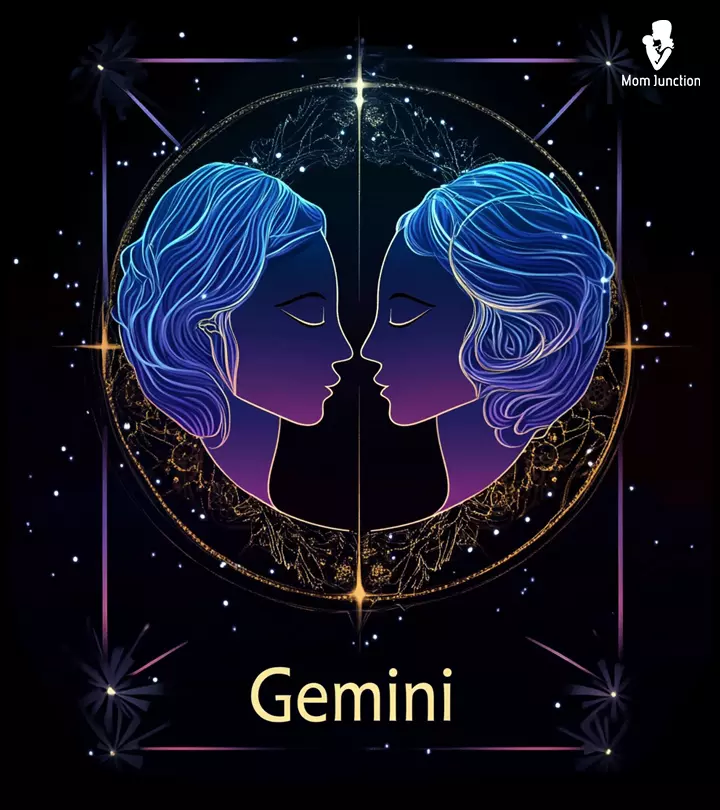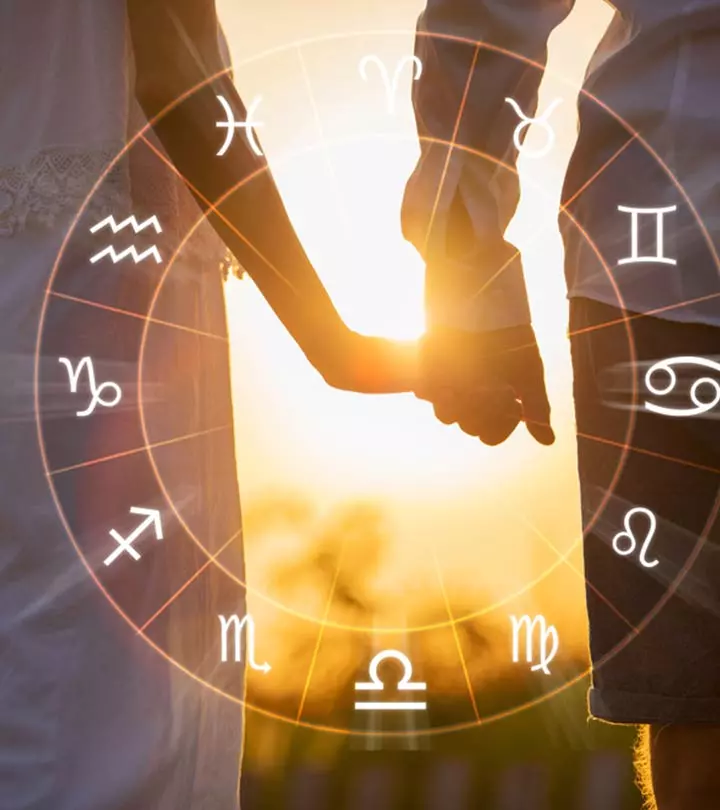
Image: Shutterstock
If you’ve ever come across the term ‘aromantic,’ have you wondered what does aromantic mean? Let’s paint a picture. Did you ever fake a crush on someone only so you wouldn’t feel left out amongst your friends? Have you rejected someone’s proposal only because you were not sure of what they wanted from you? Do you wonder why people like lavish weddings? If your answer to these questions is a ‘yes,’ you probably are an ‘aromantic.’
Yes, aromantic is a term, and no, it does not mean being asexual. Aromantic refers to someone who is not interested in a romantic liaisoniTwo persons having a sexual or romantic connection, especially a hidden one. but is more interested in platonic relationshipsiA spiritually-based partnership that is not physical. . If you wish to know more about what aromantic means and read the signs of an aromantic, keep reading as we tell you everything you need to know about it.

Key Pointers
- When building emotional connections have always felt like a task, you may be aromantic.
- The most common sign of aromantic people is that they do not have a crush at any point in time.
- Commitment in the most traditional terms such as marriage may seem bizarre even after they build an emotional bond with someone.
Who Is An ‘Aromantic’?

As the word suggests, ‘aromantic’ refers to someone who does not develop romantic feelings or attraction for another person. It is essentially an umbrella term for people who experience romantic attraction in different degrees (the aromantic spectrum or aro-spec) or an individual term for someone who does not feel romantic attraction at all (1).
Italy-based life coach Rodolfo Parlati states, “An aromantic person feels little to no romantic attraction and usually does not pursue romantic relationships. However, they can still develop strong emotional bonds, appreciate companionship, or engage in friendships that are not based on romance.”
Aromantic people find it challenging to feel the emotional connection required to build a romantic relationship and have no interest in such a relationship.
They do feel sexual attraction, but they are more content with maintaining friendships and non-romantic relationships.
They can form a deep bond with someone they connect with, but it does not culminate in romance. They may have a friendly liking or even a crush on someone, but they are less likely to enter into a romantic relationship with that person. Also, an individual’s sexual preference has no impact on their romantic orientationiiCategorization of a person's romantic experience on the basis of gender irrespective of their sexual orientation.
13 Signs You Are An Aromantic Person
Here are some common signs that indicate you are aromantic. Keep reading and see if you relate to any of these points.
1. You have never had a crush on anyone
In your teens, you must have heard your friends discuss their crushes and how they feel about them. However, you never fully understood what they were talking about because you were always uninterested in romance and never felt that romantic feeling toward anyone.
2. You pretend to have a crush
When your friends gush over someone they like, you too chime in discussing your supposed crush only so you could fit it, but you can’t really imagine what it would feel like. Your crush may be attractive, but you know deep down that you feel dispassionate toward them and do not have any romantic feelings.
3. You fail to relate to romantic stories
You cannot wrap your head around romantic TV series, movies, and novels. You feel unromantic and do not get why a pretty girl like Allie would leave her wealthy and loving boyfriend for someone like Noah. Such stories baffle you, and you wish people could be more pragmaticiBased on conclusions from experience rather than upon theory. .
In an international, open-ended online survey of 1,642 participants who identified as asexual and aromantic, one respondent from the Philippines shared “When you listen to all those songs about romantic love, you wonder if people really feel that way that they would let people ruin them. Would they really let another person make them their own? These contracts don’t seem fair. When I think that they might mean it, it makes me flinch (1).”
 Point to consider
Point to consider4. You have never felt nervous around someone you like
You have never felt what is known as ‘butterflies in your stomach.’ You feel nervous before a big event but never around someone you find attractive.
5. You are a loyal and sincere friend

You are very close to your friends, and they know you always have their back. In fact, you are very good with people and can empathize with both older and younger people. However, what you cannot feel is romance for anyone.
6. You feel sexual attraction but nothing else
You feel sexually attracted to people and enjoy sex, but you are unemotional about it and do not understand the need or importance of romance. You may enjoy sex with a particular person but still not feel anything remotely romantic for them. As a result, it may feel like the romantic aspects of dating are “formalities” or something you have to “get through.”
Interestingly, a person can be both aromantic and asexual, and they are addressed as ‘AROACE.’ An AROACE is not attracted to either the idea of romance or physical intimacy. Bmud Angel, an aromantic asexual Youtuber, explains, ”The thought of me kissing, cuddling someone, and doing all types of romance makes me cringe (i).’’
 Point to consider
Point to consider7. You do not understand the concept of marriage
For you, a wedding is nothing more than just another event where people dance and dine and have a good time. You do not feel its significance and cannot help rolling your eyes when people get emotional at weddings.
8. You are not interested in having a relationship
Romantic relationships make you feel indifferent and awkward because you do not know what the other person feels and don’t know how to reciprocate their feelings. You do not want to cause anyone any pain, so you avoid seeing anyone romantically, especially when you notice the possibility of unrequited love.
9. You want to be in a relationship for all reasons but romance
You get into a relationship for several reasons but feel unenthusiastic when it comes to romance. Your partner may give you financial stability, or they may be great in bed. You know what the reason is, and it is not what brings many other couples together.
10. You prefer the ‘friends with benefits’ arrangement
Sexual attraction is your thing but not romance. So, ‘friends with benefits’ suits you perfectly because you can be a great friend for someone but not their romantic partner.
11. You like being single

For a romantic person, being single is boring. But, for you, it is normal and something that you prefer. People around might bug you to find a partner, but you do not feel bothered because you cherish your singlehood.
12. You are not interested in knowing about people’s love life
Your friend might come crying to you about her breakup, and although you may sympathize with her, you might feel drained and bored. You act uninvolved or unresponsive toward their feelings and find it challenging to comfort them.
13. You do not understand the hype around Valentine’s Day
Gifting, writing love notes, and confessing your feelings are things that make you cringe. You are unengaged with the romantic side of life, and a day dedicated to love and romance, that is, Valentine’s Day has no effect on you and is just another day for you.
Are Aromantics Afraid Of Making A Commitment?

Aromantics do not lack the ability to love. They love their family, pets, and friends. The only thing different about them is that they cannot differentiate between platonic and romantic love. They have the same feeling of attachment to everyone they care for. Aromantic people do not experience romantic attraction, but some enter relationships. Even so, they face prejudice because of the societal importance given to romance (2).
The prejudice aro-spec people face is because romance and sexual relationships are idealized in society, to the extent that the term “relationship” automatically seems to imply one of a romantic nature. When the default definition of the word “relationship” becomes “romance,” all other forms of familial and platonic relationships become devalued and forgotten (2).
Aromantic people can get into a committed relationship, and they even cherish it but not in the traditional sense. They can feel an intense emotional connection that is more than friendship with someone, but there is less than zero chance of it ever developing into romantic feelings.
 Quick fact
Quick factAromantic Vs. Asexual

The term aromantic is often confused with asexual. However, the two terms have different meanings. An aromantic person can feel sexual attraction. They can even enjoy and desire sex. An asexual person, on the other hand, does not enjoy or desire sex. They can be romantic and enjoy cuddling, hugging, and other physical gestures but not sex. This can be confusing for a partner, as they cannot fathom a person’s need for sex without any romantic attachment.
Asexual people have a different take from aromantics on romantic relationships. According to Jo, an asexual activist and blogger, “My own experience has been that although I don’t have an active desire for a partnered relationship, I still fell in love (somewhat unexpectedly, but such is life) and was in a partnered relationship for several years.
“My relationship shared some features of a traditional partnered relationship but was quite different in others. Sometimes, I adopted language that was conventional to partnered relationships, like ‘falling in love.’ Other bits of conventional language, like ‘boyfriend/girlfriend,’ I resisted (ii).”
Understanding Aromanticism As A Spectrum
Aromanticism, like other sexualities, is a spectrum, not a binary concept. It does not simply entail that a person does not experience romantic attraction, only platonic; it encompasses many kinds of experiences. Every aromantic person may have a different perception of romantic relationships or relate differently to romantic feelings.
Studies suggest that people on the aromantic spectrum have broad perspectives on romance. Some may not experience romantic feelings, while others may develop those feelings under specific circumstances. Some are also repulsed, uninterested, or confused by the idea of romance (1).
The aromantic spectrum includes numerous identities. For instance, gray romantics have occasional romantic feelings, and demiromantics feel romantic attraction when they form a strong emotional bond with a person. On the other hand, we have aegoromantics, who enjoy the idea of romance but have no desire to participate in it, and recipromantics, who only feel romantically attracted to a person who already likes them romantically.
Therefore, aromantic individuals can enjoy fulfilling relationships, like platonic, queer-platonic (a non-sexual, non-romantic relationship involving the same level of trust and commitment as a conventional relationship), and familial connections. These bonds provide them with emotional support and companionship without the need for romance.
Myths And Misconceptions About Aromanticism
Aromanticism is as valid a form of identity as any other. However, because of the misconceptions regarding their orientation and ability to feel love, they often feel alienated and misunderstood. Here are some myths about aromanticism that have been perpetuated the most:
1. Aromantic people cannot be in a relationship
Aromantic individuals may have successful relationships. However, their relationship can be purely platonic.
2. Aromantic people are afraid of commitment
Identifying as aromantic does not indicate a fear of commitment. Aromanticism is characterized by a lack of romantic attraction and doesn’t signify an aversion to commitment.
3. They don’t feel love and are heartless
Aromantic individuals are neither devoid of love nor cold-hearted. They often prefer platonic relationships based on shared interests, mutual respect, and emotional closeness.
4. They don’t enjoy romantic content
Aromantics may have varying preferences for romantic movies, books, and songs. Some may enjoy such content, while others may be indifferent or repulsed by overt displays of romance.
5. Aromantic people are traumatized
Just because one is aromantic does not mean they have been traumatized by their negative experiences in previous romantic relationships. While a small percentage of them may have experienced trauma, most of them identify with aromanticism because they simply do not experience romantic love.
Frequently Asked Questions
1. Can an aromantic person want a relationship?
Being aromantic doesn’t necessarily mean they don’t desire relationships or romantic connections. They may enjoy unconventional forms of partnerships, and many aromantics want relationships, marriage, and children.
2. Can aromantic asexuals fall in love?
Aromatic people may appear emotionless or robotic, yet they are not. Love has no boundaries and is unconditional. A person can fall in love with someone they genuinely adore and connect with them whether they are romantically inclined or not, sexual or asexual
3. Can an aromantic person date a romantic person?
Aromantic people can still connect with romantic ones despite their discomfort with romance and intimacy. It’s not unusual for aromantics to enjoy activities that are popular with romantic couples. Some aromantics like to be hugged and kissed in a non-romantic way.
It is quite normal if you are aromantic and not something that you need to stress over. Remember, aromantic and asexual are not the same thing. You feel the same arousal for your partner as others do, but the only difference is that you consider it platonic rather than romantic. If your friends or your partner cannot understand the difference between romantic and aromantic, give some examples to help them understand.
Infographic: What A Relationship With An Aromantic May Feel Like?
Being in a relationship with an aromantic may seem odd, but these relationships exist and are even flourishing well. So if your partner or crush is aromantic and you want to know what to expect from your relationship, here is your go-to guide to understanding this uniqueness.
Some thing wrong with infographic shortcode. please verify shortcode syntax
Illustration: What Does Aromantic Mean? 13 Signs You Might Be An Aromatic

Image: Dall·E/MomJunction Design Team
Aromanticism is an orientation that involves little to no romantic attraction. Learn more about the aromantic spectrum in this guide!
Personal Experience: Source
MomJunction articles include first-hand experiences to provide you with better insights through real-life narratives. Here are the sources of personal accounts referenced in this article.
i. My experience being Aromantic Asexual (AROACE);https://www.youtube.com/watch?v=pVHr3kp8A2E
ii. Narratives of Aromanticism (vs personal experience);
https://alifeunexamined.wordpress.com/2016/05/05/narratives-of-aromanticism-vs-personal-experience/
References
- James A. Fowler et al.; (2025); Exploring Aromanticism Through an Online Qualitative Investigation With the Aromantic Community: “Freeing, Alienating, and Utterly Fantastic”.
https://www.tandfonline.com/doi/full/10.1080/19317611.2025.2311158#abstract - Rilee Granger; (2025); Amatonormativity, Aromanticism, and What Defines a Relationship.
https://vc.bridgew.edu/cgi/viewcontent.cgi?article=1330&context=honors_proj
Community Experiences
Join the conversation and become a part of our nurturing community! Share your stories, experiences, and insights to connect with fellow parents.
Read full bio of Natalie Finegood Goldberg
- Rodolfo Parlati is a professional life & executive coach and leadership trainer with over 17 years of expertise. After graduating in business administration and working in the related fields, Rodolfo got certified as a professional coach from Associazione Coaching Italia in 2020. He supports his clients in improving their communication skills, relationships, work-life balance, and productivity while reducing their stress.
 Rodolfo Parlati is a professional life & executive coach and leadership trainer with over 17 years of expertise. After graduating in business administration and working in the related fields, Rodolfo got certified as a professional coach from Associazione Coaching Italia in 2020. He supports his clients in improving their communication skills, relationships, work-life balance, and productivity while reducing their stress.
Rodolfo Parlati is a professional life & executive coach and leadership trainer with over 17 years of expertise. After graduating in business administration and working in the related fields, Rodolfo got certified as a professional coach from Associazione Coaching Italia in 2020. He supports his clients in improving their communication skills, relationships, work-life balance, and productivity while reducing their stress.
Read full bio of Ratika Pai
Read full bio of Akshay Nair
Read full bio of Benidamika J Latam


















